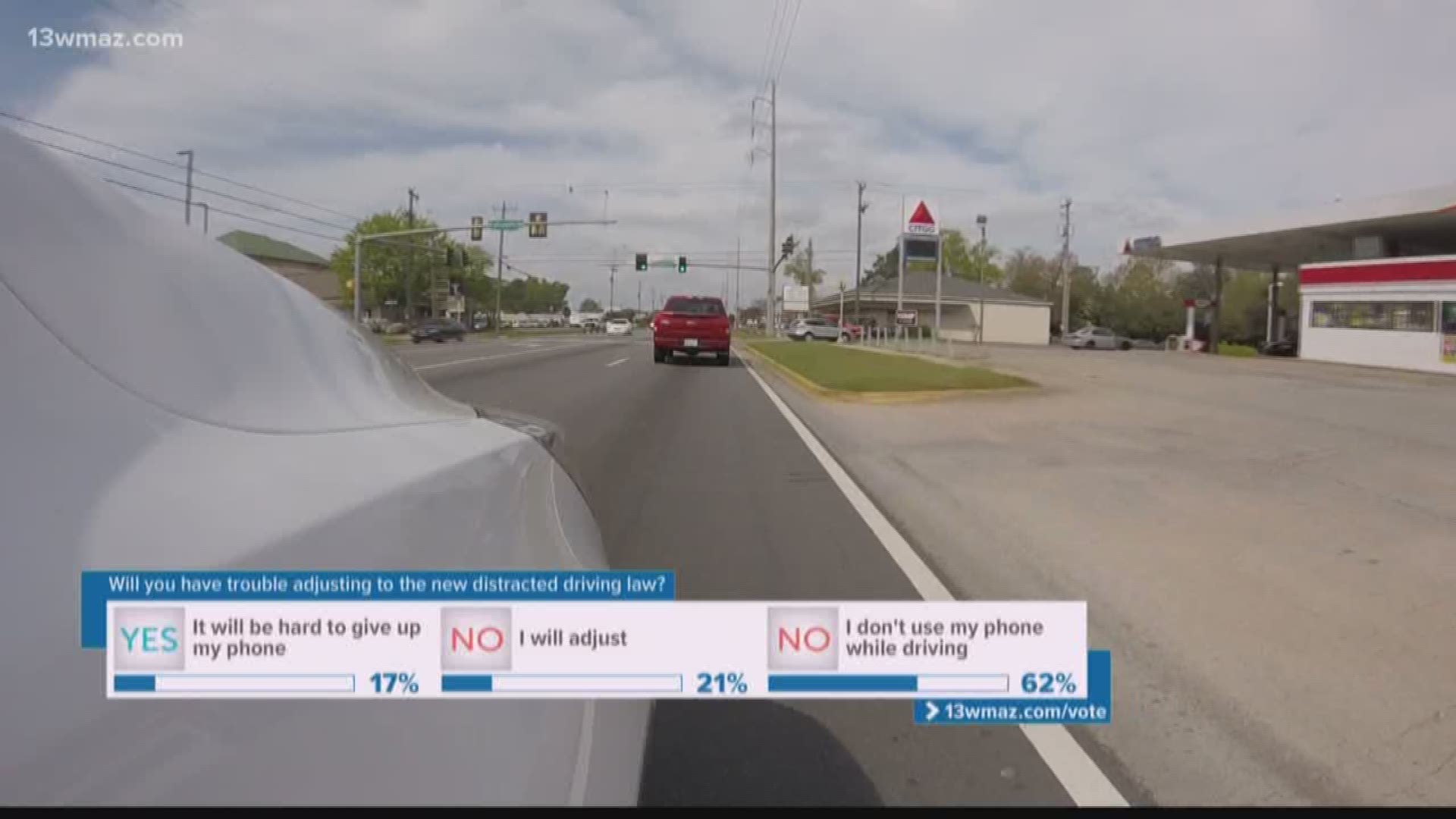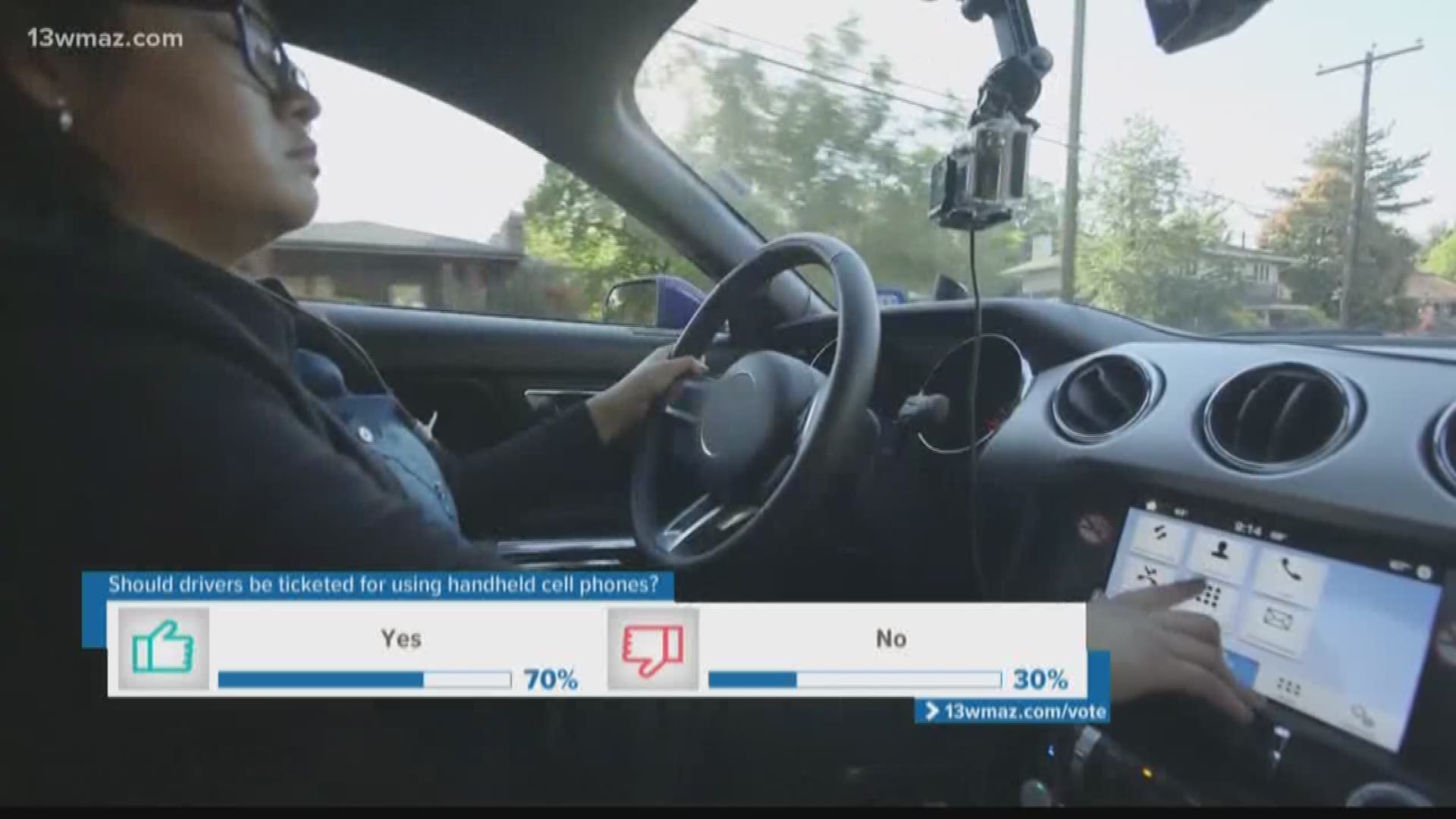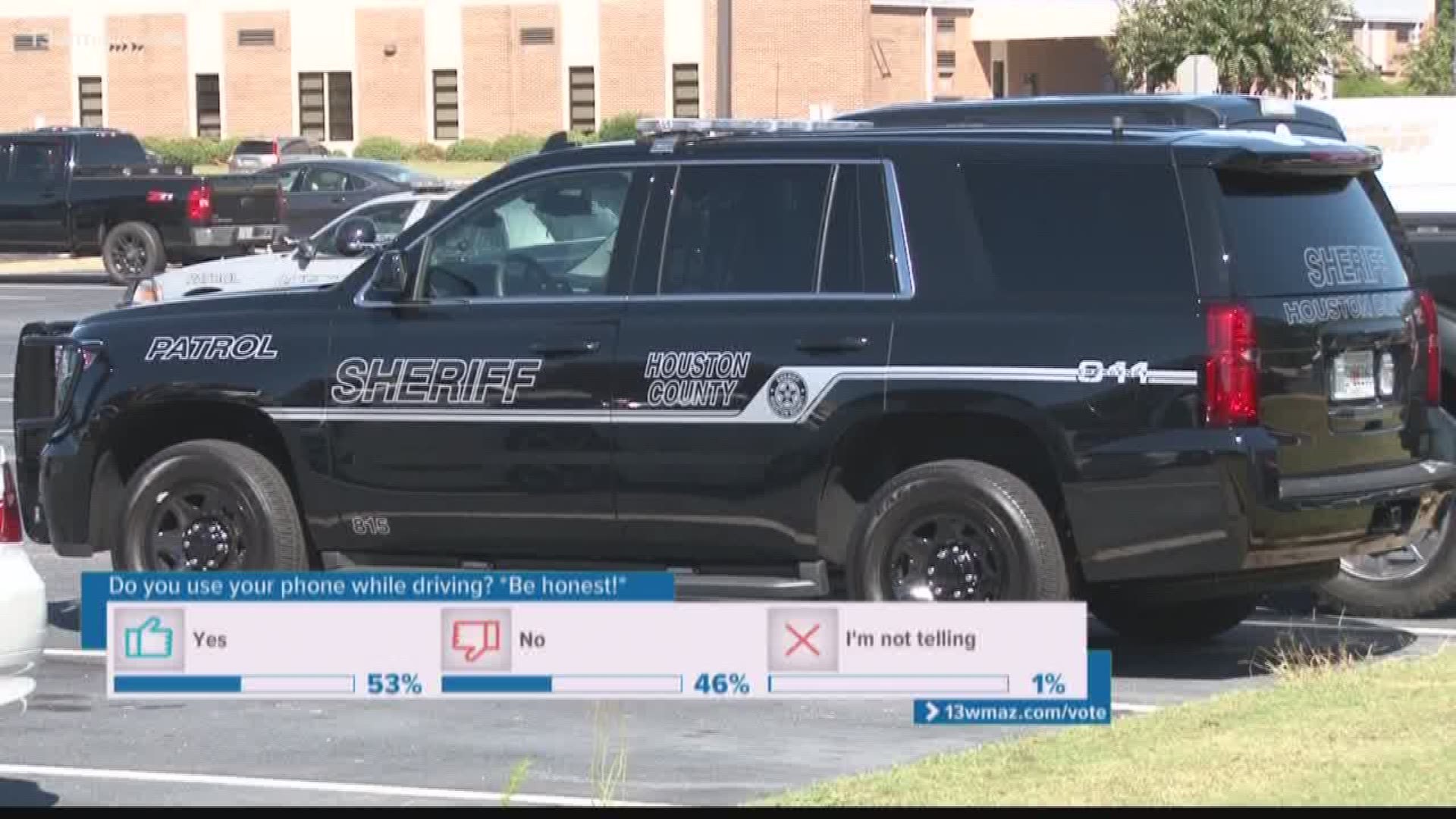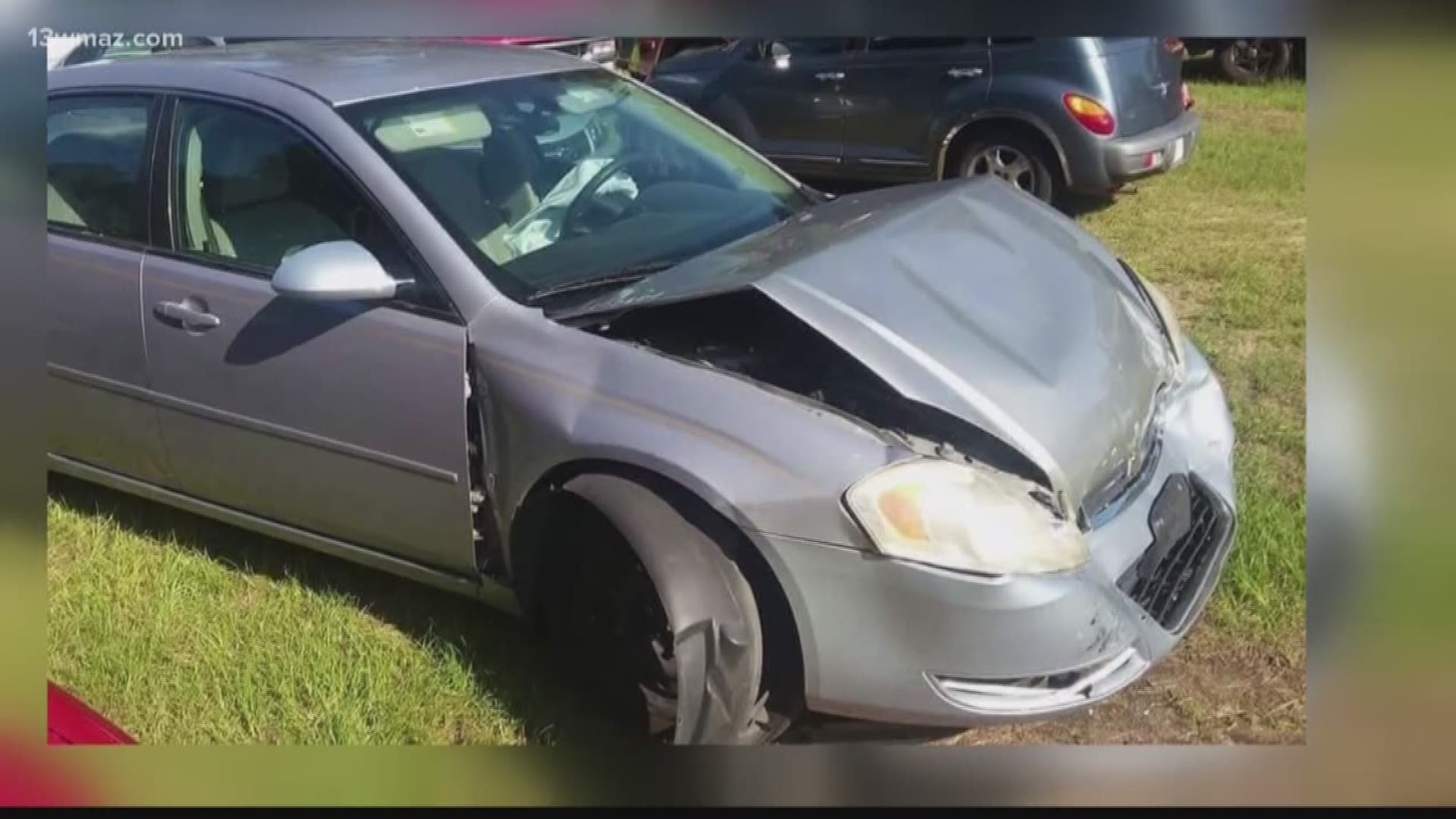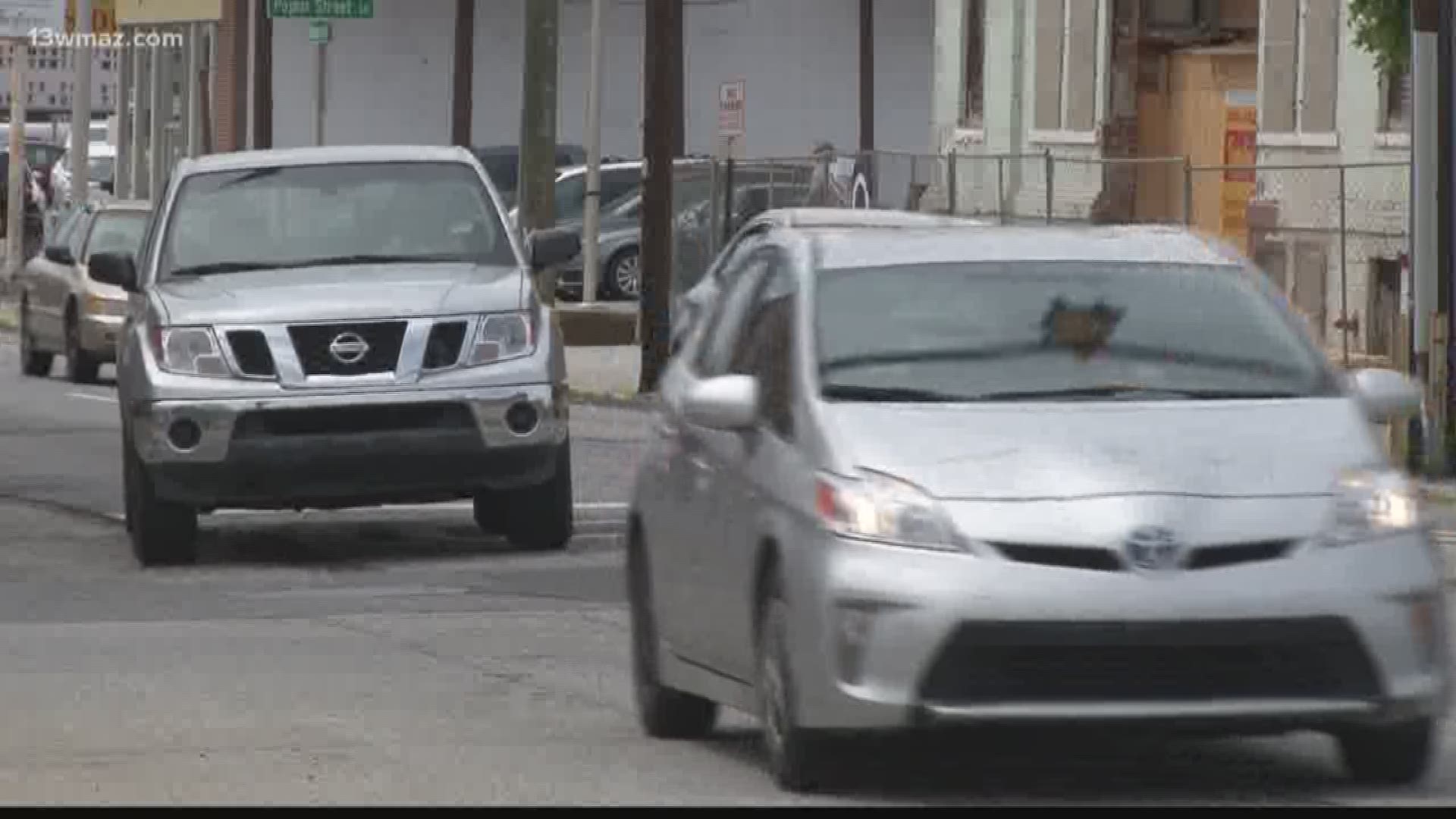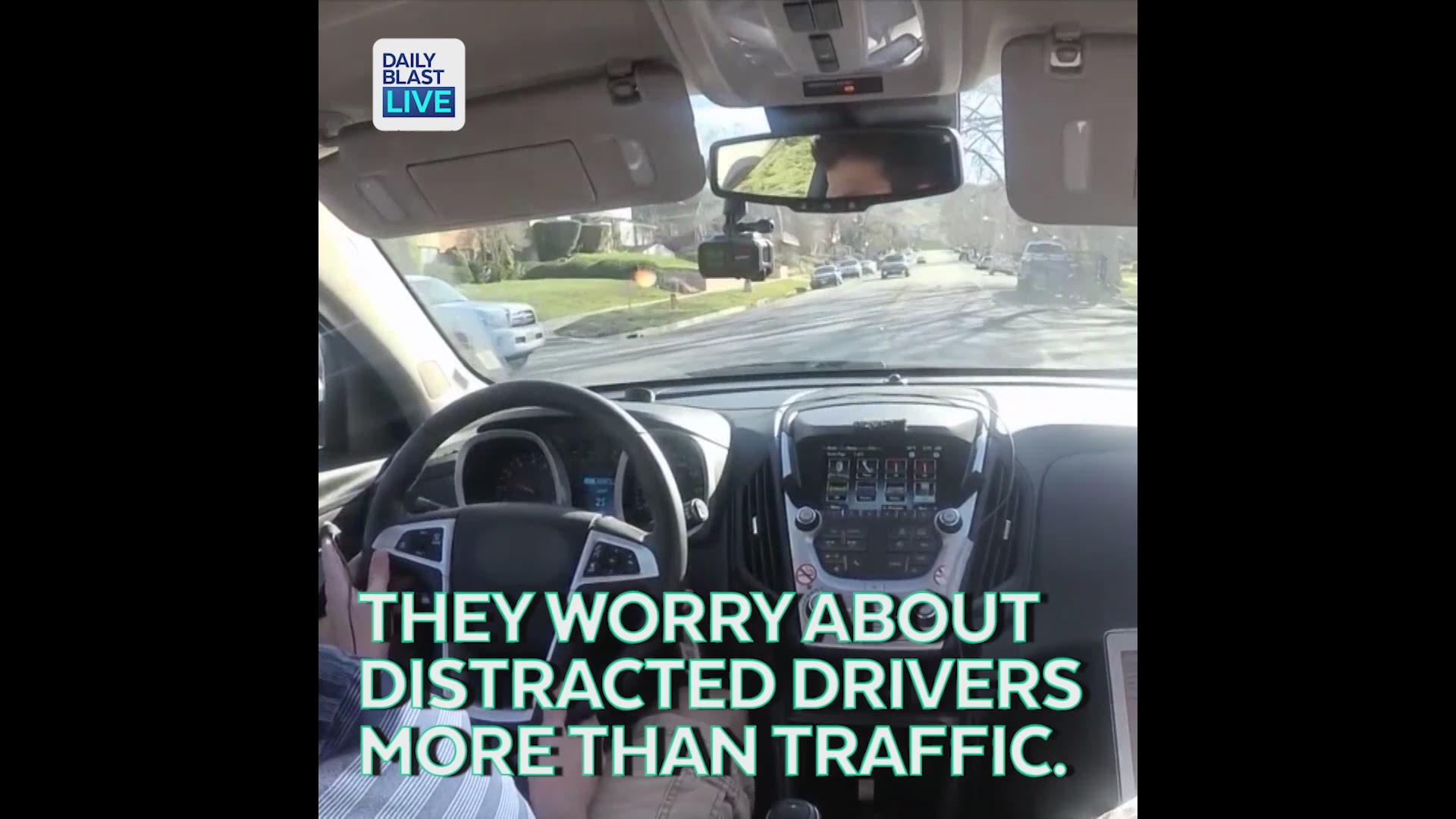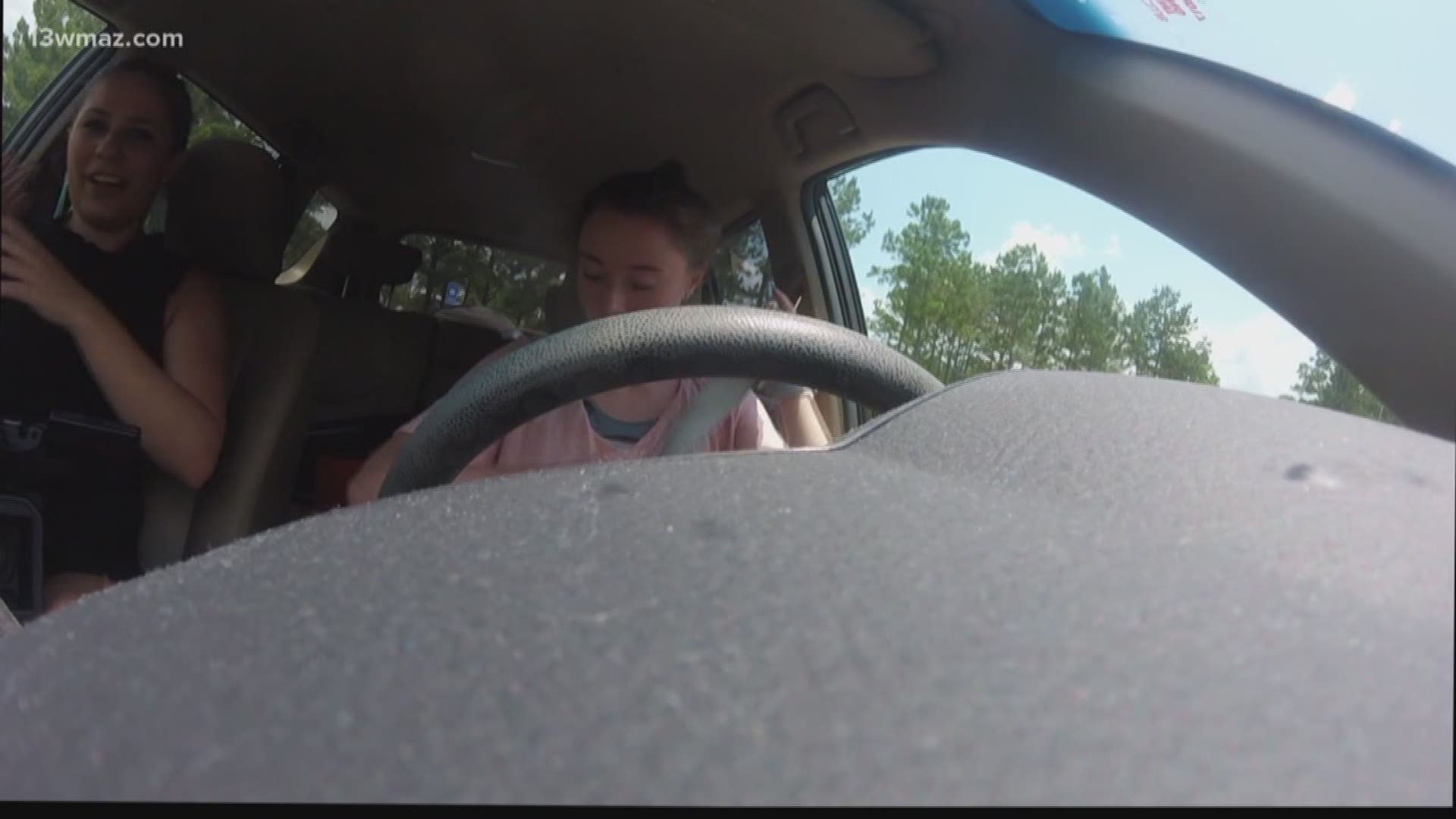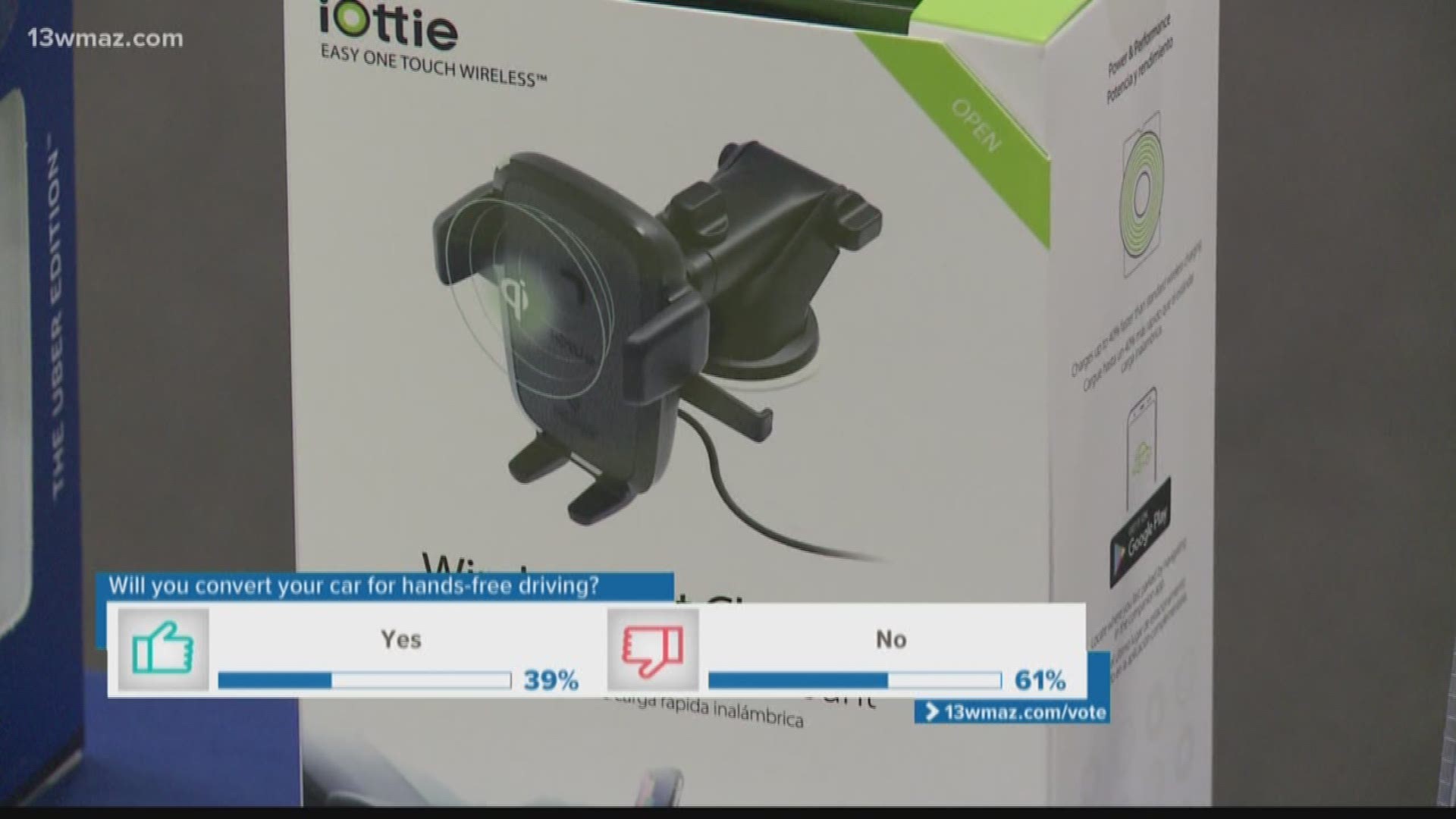Your guide to the hands-free driving law
A new law called the 'Hands-Free Georgia Act is going to change the way everyone drives in the state of Georgia.
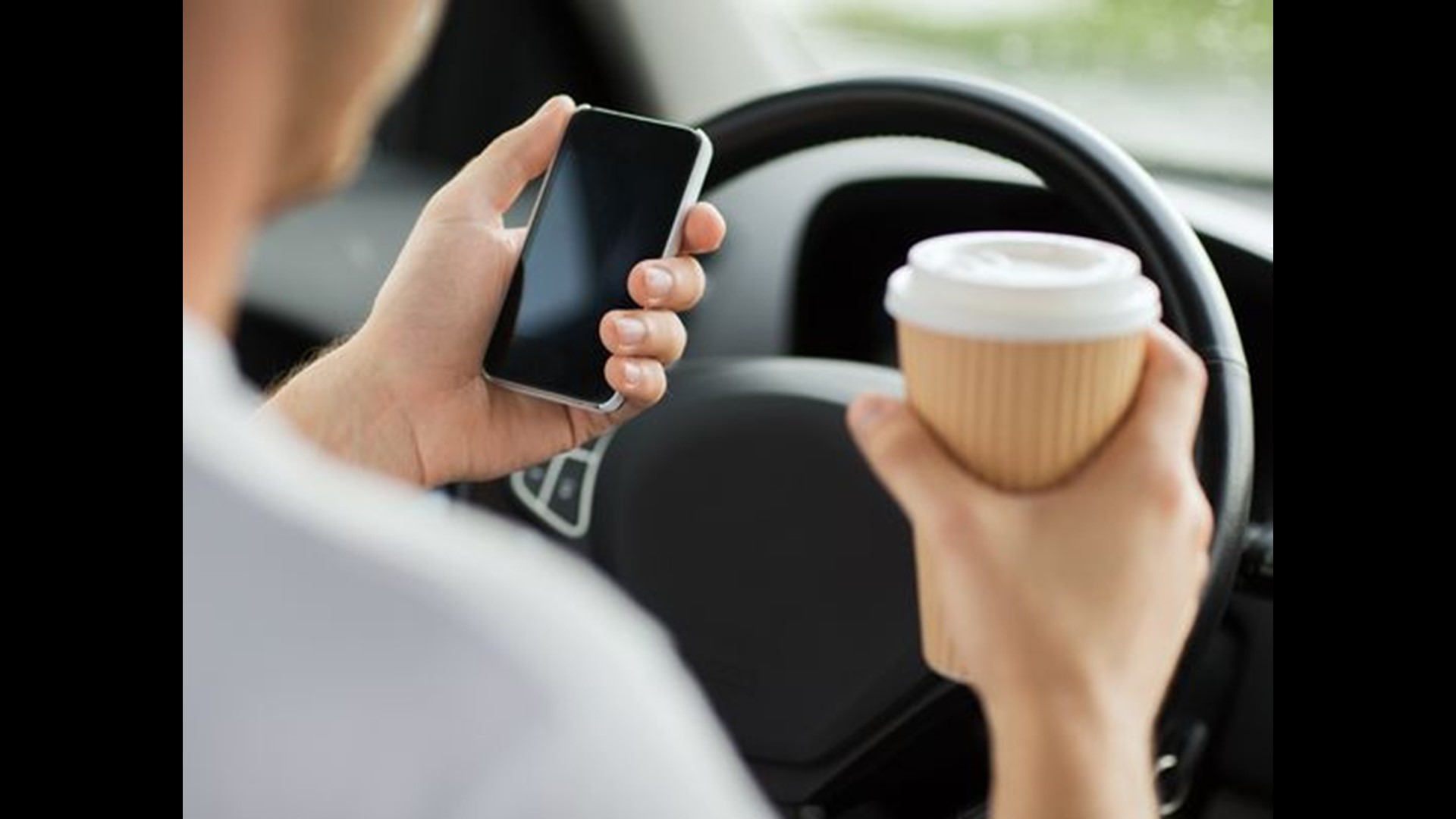
The 'Hands-Free Georgia Act' makes it illegal to hold or support any type of wireless telecommunications device or stand-alone electronic device while driving. It goes into effect July 1 of this year. Here's what you need to know in order to prepare yourself and your car for the new law.
Law enforcement preparing for distracted driving ban
A bill that could change the way you drive is waiting on the Governor's desk.
The Bibb County Sheriff's Office is keeping a close eye on House Bill 673, which they say will be easier to enforce than current distracted driving law.
After passing the Georgia House and Senate, HB 673, which would ban drivers from holding any type of wireless device, has the support of drivers like Shamika Scales.
“You're not just putting yourself in danger, you're putting everyone around you in danger as well so you have to kind of be mindful of that,” Scales says in downtown Macon.
She and her friend, Tami Lewis, drive to Macon every day from Warner Robins for work and see distracted drivers all the time.
But Scales says the law wouldn't be a tough adjustment, because she puts her cellphone in her purse before getting behind the wheel.
“Not for me, because I do that anyway, I make sure mine is out of the way so I'm not even tempted to touch it,” Scales says.
At the Bibb County Sheriff's Office, they're keeping their eye on the bill.
Captain Brad Wolfe says the change would be easier to enforce than the current texting ban.
“Whereas before you had to kind of be able to prove they were texting, either receiving or sending a text, whereas if they said I was looking up a contact, looking to make a phone call, you couldn't really enforce that. Now, it's going to be across the board, any hand held device is against the law,” Wolfe said about the law.
The texting ban is often hard to enforce, because Wolfe says deputies often have to prove the person was messaging as well as doing something else to cause concern they’re driving distracted, like swerving.
He also explained that he sees more people on their phone and driving when he’s driving his personal car, than when he’s in a marked patrol car.
Wolfe says if HB 673 is enacted, they'll train their deputies on enforcement immediately in a legal session. The ins and outs of the law would be explained to deputies and they’d be given a written copy of it.
He also said there will most likely be a 15 to 30-day grace period to warn drivers who get pulled over, according to Sheriff David Davis’ history with such law changes.
In about 20 percent of the accidents they respond to, Wolfe says his deputies normally suspect or can prove distracted driving.
By tweet, Governor Nathan Deal's spokeswoman says the governor has 40 business days to review all legislation before signing or vetoing it. In the same tweet, She wrote it was too early to know which bills he planned on signing.
In an email, Georgia State Patrol says the agency has not decided if they will use a grace period to introduce the law change.
GSP trooper in favor of 'hands-free' cell phone bill
A proposed bill in the Georgia Senate might change the way you use your cell phone in the car.
If House Bill 673 is passed, law enforcement could give you a ticket just for having an electronic device in your hand.
Right now, Corporal Michael Burns with Georgia State Patrol says officers cannot ticket you without proving that you've been sending or receiving text messages behind the wheel.
"Without actually looking at their phone or them admitting to it, I cannot legally prove that they were sending or receiving an electronic message," says Burns. "The person could say that they were using their GPS, or changing their music, or even looking up a contact."
Burns says everyone is entitled to a reasonable expectation of privacy, so under current state law officers cannot ask people to scroll through their phones.
But, if HB 673 is passed, that could all change.
"There would actually be a threat of enforcement which would lead people to put the phone down and drive," says Burns.
The proposed bill would allow law enforcement to hand out tickets to any driver holding a cell phone or electronic device while behind the wheel. Fines would range from $75- $300.
According to Kyle Collins with GDOT, about 70 percent of Georgia's annual roadway fatalities come from "distracted driving." Which includes texting, talking, eating, fidgeting with the radio, or driving under the influence.
If passed, the bill would allow drivers to talk and text "hands-free" behind the wheel.
"I think it would make people's lives better because it creates a texting and driving law that's actually enforceable," says Burns.
VERIFY: 90-day grace period for distracted driving ban enforcement?
Governor Nathan Deal signed the Hands-Free Georgia Act into law.
It outlaws drivers from holding or supporting a phone or other electronic device with their body while driving.
We set out to Verify when the law takes effect and when local law enforcement will start writing tickets.
To Verify, we talked to Corporal Michael Burns with Georgia State Patrol, Captain Ronnie Harlowe with Houston County Sheriff's Office and Lieutenant Scott Davis with the Bibb County Sheriff's Office.
The Governor's Office of Highway Safety says the Hands-Free Georgia Act takes effect July 1, 2018.
Some reports say the Georgia State Patrol will give a 90-day grace period for drivers to get used to the law.
But Corporal Burns with the state patrol's Forsyth Post says headquarters has not told them a set period.
“If our headquarters does not give any type of mandate, then it's going to be up to the particular trooper on how they want to handle it. I'll tell our people that my advice would be to give some type of grace period just because, like I said, it's a habit, daily habit for most drivers,” Burns explains.
Burns says there is no mandated 90-day grace period, but he does not think it’s fair to start ticketing immediately on July 1.
His post covers Monroe, Lamar, and Bibb counties.
In Bibb County, Lieutenant Davis says there will be a grace period, just not 90 days.
“It's our position to try to give it 30 days, period on it, just because it's a lifestyle to have that phone in your hands,” Davis says in his office.
Davis told 13 WMAZ deputies reserve the right to ticket for the offense after July 1 in more serious cases, like accidents.
Houston County Patrol Division Captain Ronnie Harlowe says they'll also observe a grace period, but have not decided how long.
The Governor's Office of Highway Safety also said in part:
“While most state and local law enforcement officers will be working to educate all motorists on HB 673 in the first few months, drivers should not expect to automatically receive a warning if they are stopped for violating the Hands-Free law.”
So, we Verified that there is no mandate for a 90-day grace period.
The law itself also does not require or mention a grace period after the effective date.
VERIFY SOURCES
Captain Ronnie Harlowe, Houston County Sheriff's Office
Corporal Michael Burns, Georgia State Patrol Post 44
Lieutenant Scott Davis, Bibb County Sheriff's Office
VERIFY RESOURCES
HB 673
Governor's Office of Highway Safety
What you need to know about the distracted driving ban before July 1st
A new law is going to change the way everyone drives in the state of Georgia.
The law, called the 'Hands-Free Georgia Act,' makes it illegal to hold or support any type of wireless telecommunications device or stand-alone electronic device while driving.
Governor Nathan Deal signed the law on Wednesday afternoon and it goes into effect July 1 of this year.
Here's what's allowed under the law:
- Using an earpiece, headphone device, or smartwatch to create voice-based communication
- Voice-based communication that is converted by the device to written form
- Using a device for navigation
Here's what's NOT allowed under the law:
- Physically holding or supporting any type of electronic or telecommunications device while driving a car
- Writing, reading or sending any text message, instant message, e-mail, or other internet data while driving
- Watching or recording a video while driving
- Reaching for a device that requires you to leave your seated driving position or unbuckle your seatbelt while driving
There are a few exceptions.
Electronic devices that are used solely for broadcasting the inside or outside of your car are allowed to record while driving.
You also are exempt from the law if you're reporting a traffic accident or other emergency.
Utility service providers and law enforcement officials are also exempt from the law while on official business.
The law does not apply to drivers in parked cars.
The penalty for a first offense is $50 and one point on your license.
A second offense is $100 and two points on your license.
A third offense jumps to $150 and three points on your license.
However, after the first offense if you bring a receipt or proof of a newly purchased hands-free device, you will not be guilty of the first offense. But, you can only use that exemption once.
You can read the newly signed law here.
Wearable devices supported under hands-free driving law
Georgia's hands-free driving law that goes into effect July 1st says wireless devices can't be supported by any part of your body, but that doesn't mean you have to remove all devices before hitting the road.
Wearable devices like Apple Watches and Fitbits can remain on your wrist while driving. Some have navigation or calling features that can be started before driving.
Katie Stone loves her watch. She says that she already wears her watch to drive and she thinks using the navigation and calling features on her watch are a lot safer than having to pick up her phone.
"You can do almost everything you can do with your phone on it, so I think it can make me feel more comfortable than using my phone," said Stone.
The law goes into effect July 1st.
Fact check: Does Georgia's new hands-free law apply to music-streaming apps?
ATLANTA — Confusion over Georgia's new hands-free driving law has opened Pandora's Box on social media.
Law enforcement offices across the state are posting notices about the new law, set to go in effect July 1, but the posts have been causing more confusion than clarity.
Why?
Some of the posts are claiming the new law, which prohibits the use of "wireless telecommunications device" and "stand-alone electronic device" while driving also applies to Internet-based radio apps like Spotify and Pandora.
But you don't have to delete any of those apps, just yet.
11Alive checked into it and according the Governor's Office on Highway Safety drivers can use music-streaming apps, as long as they're activated before drivers get on the road.
So, while you can jam out to your Spotify playlist while you drive, you can't touch your phone to skip, start or stop the app while you do it.
By the way, the new law also doesn't apply to using the radio.
Click here to read the full law on the Georgia Governor's Office of Highway Safety.
How to prepare your car for the hands-free driving law
Audio Zoo manager Pete Unwin said they have been seeing an increase in business from people ditching their old radios.
"With the new law coming out, it has become very prominent for people to want to change the radios," Unwin said
The reason is because of the hands-free driving law which starts in July. Under the law, you will not be able to hold your cell phone to your ear or hold it in your hand when driving. Unwin says Audio Zoo has 18 wireless options that can connect to your phone, from high-tech to basic.
"The common ones that we sell -- CD, USB, auxiliary, the one you plug your phone into to charge it, and of course, it comes with the Bluetooth for the purpose of phone calls," Unwin said.
At this point, you may be asking yourself, "How much does this all cost?" According to Unwin, his Bluetooth radios range from $89 for the most basic option up to more than $500 for fancier models.
If you're not interested in getting a new radio installed in your car, you can get a cheaper option like a suction cup which costs $15, or you can get a fancier option, which could run you $25 at Auto Zoo in Warner Robins.
We also took a look at the options at Best Buy. Trey Rooney said there are a lot of suction cup options including a CD slot phone holster.
"So, I mean, you probably don't have to have your phone mounted anyway. You can throw this in the dash, and have it ready to go in the CD slot," Rooney said.
Best Buy's options range from $20 on the cheaper end and $100 for an option that is a little fancier, but all those options are aimed at making sure you don't get pulled over in July for being on your phone.
According to Unwin, you can expect to pay $50 to get a basic model installed, but that price could be more depending on the year of your car and what model radio you want to be installed.
Don't text and drive: How to minimize distractions on the road
(Cars.com) -- When you’re behind the wheel of a car, distraction is something to be mindful of.
Each year, more than 3,000 motorists are killed and more than 400,000 are injured in crashes involving distracted drivers. Overall, distracted driving is implicated in 1 out of every 5 traffic collisions. Those figures are even higher for teens.
It’s hardly surprising these days, what with everything from smartphone apps to text messages to in-car multimedia systems competing for your attention.
Ironically, while a full three quarters of drivers support bans on handheld devices, half still reported answering incoming calls, and a 25 percent to placing calls.
And don’t kid yourself with the ol’ hands-free excuse. Studies have shown that hands-free calling and voice-to-text are just as distracting or more so than handheld devices.
Remember, just because an automaker put a feature in your car doesn’t mean it’s safe to use while driving.
Here’s a checklist of things to do to decrease distractions while driving:
- Adjust your seats, headrests, vehicle controls and mirrors, and fasten your seatbelt, before moving.
- Keep tempting distractions like your phone outta sight, outta mind and outta reach.
- Enter your destination in the navigation system or consult your directions before driving.
- Avoid eating or drinking.
- No texting, phone calls, photos, or Pokemon Go.
Georgia 'hands-free' law reminder video goes viral
ATLANTA -- Sheldon Herbert, who says he is an Atlanta Police Officer, posted a video to his Facebook page last week that points out the rules of the new "hands-free" law that goes into effect in Georgia on July 1.
In the video, Herbert is driving and talking to his properly mounted phone.
"You can do a "one-touch," per the new law," Herbert said. "You can touch your phone one time if it's mounted -- like mine is -- to answer a call, or to hang up a call."
Under the new law, motorists are not permitted to hold a phone for any reason while driving. Phones may be mounted and they are permitted to answer or hang up a call using the "one-touch" rule that Herbert mentions. This rule also extends to other digital devices, including GPS devices.
"If any officer sees you with a phone in your hand, you're going to get a ticket," Herbert said. "That includes at red lights."
Motorists have to be pulled entirely off of the road in order to use the phone for any other function.
"You literally have to be pulled off of the road, in a parking spot, with your car in park to be able to text somebody or to have your phone in your hand," Herbert said.
Herbert pointed out that as of the time he posted the video on June 20, 64 percent of the road fatalities in Georgia so far in 2018 were tied to non-use of seatbelts or distracted driving through phone use.
By June 24, Herbert's video had been viewed more than 1.8 million times on Facebook.
Bibb deputies making preparations to enforce new hands-free driving law
The countdown is on for the new hands-free driving law. It starts in less than a week, and the Bibb County Sheriff Office says this law is going to change the way people drive in Macon.
If you drive down the interstate across Central Georgia, you can see signs warning drivers the new hands-free law is taking effect soon, but Brenda Howard says the law was long overdue.
"I think it's the best thing they ever done. Everybody should have a hands-free device, not try to text and drive at the same time. I don't see how they can do it," Howard said.
Bibb County Sheriff Captain Brad Wolfe, head of the traffic division, agrees. Wolfe said the current texting and driving law simply is not cutting it.
"It's an issue in Macon -- texting and driving -- of course, we see it a lot more when we are in our personal vehicles. A lot of times being in a marked patrol unit, people see that and they behave a little bit better versus when we are on duty working," Wolfe said.
In 2017, the sheriff's office issued about 26 tickets for texting and driving. This year, they have issued 17 violations. Wolfe says the number is low because people put their phones down when they see the police, but with the new law, he says things are going to change.
"The law, the way it's written, if you're holding your phone, that's good enough. You don't have to be doing anything else, you don't have to be texting or trying to do anything," Wolfe said.
Wolfe says officers will determine whether to write a ticket, and officers will be trained all this week on the new law. Wolfe is hopeful that this law is going to get drivers to refocus on the road.
"It natural for people to be distracted by your phone, so it's really important to have some legislation, regulation, to keep people from multitasking and trying to drive," Wolfe said.
Wolfe says the sheriff's office will have a 30-day grace period where they'll only issue warnings, but says officers will be out in full force July 1st making sure drivers are following the law.
How Georgia's hands-free law compares to measures in other states
ATLANTA -- It's day two of being hands free behind the wheel in Georgia and Georgia State Police have already issued close to 100 warnings and 34 citations since the law has been in effect.
About 47 states have distracted driving laws.
So how does the Peach state measure to others?
The median penalty nationwide is about $100, but the Georgia penalty falls in the middle and $50 for first-time offenders along with possible points on your license.
California's ticket price is lowest at $20 and Alaska is the most aggressive. The max penalty there for a first offense could be $10,000.
Officials said it could take a while before we see the effects of the hands-free law in Georgia. As the new law comes into effect, it's also the fifth anniversary of 18-year-old's Merritt Levitan's death. Merritt was killed when a distracted driver hit her bicycle on a team cycling event on July 2, 2013.
Her parents Rich and Anna Cheshire Levitan came to the Georgia State Capitol from their home on St. Simons Island, Monday, to help officially usher in the new law.

